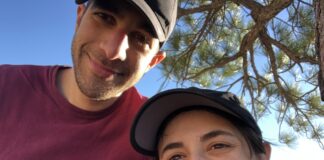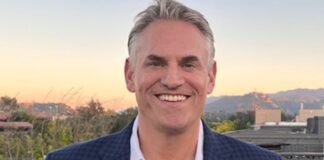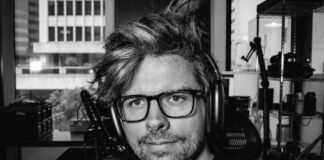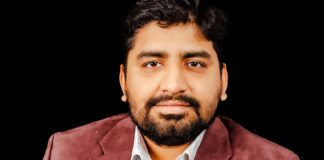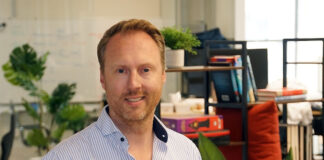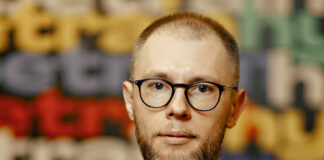Ironhack is a marketplace for emerging technology talent
Please introduce yourself and your startup Ironhack to our readers!
Ironhack is a marketplace for emerging technology talent. We have a direct to consumer, B2C strategy in the form of our Web Development, UX/UI Design, Data Analytics and Cybersecurity bootcamps. And we also work with companies of all sizes to find the best possible technology talent to fit into their future hiring plans.
How did you get the idea of Ironhack?
We arrived at a time when there was a clear tech skills gap. On the one hand, you had record youth unemployment in Southern Europe, and on the other hand you had thousands of companies looking for tech talent that was impossible to find.
Our idea was to take all these young people that were unemployed or underemployed that had tremendous potential, and give them the necessary skills to bridge that gap. To do this we wanted to work closely with employers of different sizes and help them identify the tech talent of the future. What we do best is providing transformational learning experiences for people who are tremendously committed to their career journeys.
Why did you decide to start with Ironhack?
When we started Ironhack, the skills gap in Spain was the eye opening market reality. You had, on the one hand, 57% youth unemployment in Spain. And then on the other hand, you had 750,000 jobs in IT-related areas and tech-related areas that were unfilled. Both me and Gonzalo were familiar with business and markets, and for those two numbers to coexist, it made no sense to us.
What is the vision behind Ironhack?
Ironhack was created to be the marketplace that connects supply and demand for that emerging talent.
A big part of what we’re trying to do here is solve a massive structural problem that has both economic and social implications. We’re looking forward to 2030, and it’s estimated that we’re going to see a deficit of skilled workers of $85 million, which represents a global GDP loss of $8.5 trillion. We’re going to see 100 million people impacted or displaced due to the impacts of automation and newer technologies. On the flip side, there’s all these opportunities in technology and related fields that need to be solved for.
We’re working towards becoming the largest and most dynamic marketplace for emerging tech talent, that connects emerging tech talent with the best companies who are looking for them. To that end we are fast becoming the most outcomes-focused institution in the world, helping people lead more fulfilling lives, make more money, and generally be happier through their employment opportunities. The next step is to do that at scale, and achieve our goal of impacting over a million people through our work.
How difficult was the start and which challenges you had to overcome?
When we started in Europe in 2013, we were effectively first to market. This was a totally new model that had just started two years prior in San Francisco. But as we know, San Francisco and Europe are very different environments, and very different tech ecosystems. We had pretty much everything stacked against us. We started the company at a time when Spain and the rest of Southern Europe were dealing with a really bad economic crisis. Most people were actually fleeing the country, looking for job security. We were starting a nontraditional educational business in a country that didn’t have as strong a tradition of private education as exists in the US.
There was an emerging, but certainly not mature, technology ecosystem that made it complicated for consumers to see a path to employment or to success. Most of the young people in the market did not see development, tech, entrepreneurship, product design as a viable pathway. They were still thinking about the jobs of the present or even the past as a pathway.
And then the last thing was that many learners have been reinforced throughout their career that they have to pursue a profession in their field of study. So, if they went to University for something, they had a very linear career pathway. Which in our view couldn’t be further away from the truth. So, for us it was really challenging to mitigate all those objections with no capital. There was no capital available to us and we wanted to build an educational brand that people trusted with little to no resources.
How did we overcome it?
I think for us it was due to ruthless obsession with outcomes and with over-delivering on the expectations of the consumer. What we saw in the first cohort, the first 13 students that did Ironhack, there’s plenty of stories. I think we overcame this through a lot of focus. Solving a problem of consumers, and solving a problem of our corporate partners. Hard work and focus on long-term value creation. Those are some of the key ingredients of our success many years later.
Rewinding to the start of the pandemic, we’ve seen tremendous evolution in acceleration of many trends that were already in place. The first is that we were “forced” to take our model online through our remote offering. The results of that transformation have been remarkable. We’ve proven to ourselves that we can actually deliver an excellent online educational experience that is community-based, as well as the experience that we’re still delivering in our physical campuses.
For us, a key pillar of our growth strategy going forward is how we reach consumers in cities and towns and in countries where there isn’t a great in-person offering. Secondly, how do we reach consumers that for a number of reasons, prefer to learn remotely, prefer to learn online, and otherwise we wouldn’t have been able to reach them? In that category, we’ve seen awesome examples of parents that can’t leave their home because they have to be close to their children, people who have disabilities, people who have very long commutes and otherwise wouldn’t be able to enroll in the course. That’s a big part of the transformation of the past couple of years.
Who is your target audience?
Our audience normally consists of people who are looking to change careers, whether it is because they are not fulfilled with what they are doing, or just because they want to progress in their careers. They tend to be those who are curious and want to progress fast and launch their careers in tech, rather than spending years in traditional education not building any hands-on experience. We’re looking for committed learners, which means someone who is all in. They’re willing to put in the hard work, regardless of their background, which is a beautiful thing about what we do.
Under that umbrella, it’s also for those starting out with zero experience but want to fast-track their education and get a headstart in tech. Their traits and profiles are varied according to the bootcamp they’re going for, but our catalogue is welcome to all. It includes people in other career tracks like lawyers or ex-bankers, but it’s also open and available for people who didn’t go to university and are stuck in their life. People who have tremendous potential and work ethic, but just need the support of a partner to get them to the next stage.
We’re a partner, an ally, a champion. We’re not just teaching a coding language, we’re with them from beginning to end. Not just to teach the hard skills, but also to help them develop their soft skills and to offer interview support and career coaching.
What is the USP of your startup?
There are a few things that make us really unique. First is this intense focus on a committed consumer and on employment outcomes. We have many other actors in the market that offer upskilling or more light touch educational experiences for people that are generally curious. We’re singularly focused on committed learners that are looking for 180 degree transformations in most cases. We built our organization around facilitating that transformation with a very tangible outcome at the end.
For us it’s more about, how do we select the right learners for programmes? How do we deliver a best in-class learning experience? How do we make sure that we have the most updated curricula in a market that requires constant updating? Or how do we support our students and graduates in the best way possible to get that employment?
The second thing that makes us unique is community.
I think Ironhack has a community now of 10,000+ alumni, hundreds of employers, and thousands of collaborators across our markets. And it’s really a special community of people who are committed to each other, that share a lot of values and that are incredibly supportive not only of our students on day one getting that first job, but really throughout their whole careers.
The third unique aspect of the Ironhack mission is its global footprint, and the global ambitions of everything that we’re building. Many of our competitors are single-market focused, whereas we’re building a community that spans three continents, has dozens of countries represented in more than ten cities. We facilitate global conversations and international understanding, which I think is really powerful for this generation of learners.
It’s especially important, on a personal level, to myself and Gonzalo that we have this global value proposition, this global network of partners, and alumni around the world. I have lived in 15 cities in various continents over the past 20 years. Similarly Gonzalo has lived in six or seven different countries. So we wanted to do something that connected ecosystems across the world and was not only a very local initiative.
Can you describe your typical workday?
My typical workday starts with founder selfcare. I wake up early and I spend the first hour and a half of the day working out, eating a healthy breakfast, and meditating, keeping as focused and centred as I can when I start my day. I’m leading my team from Miami, and most of the organisation is in Europe. So, by the time that I wake up, there’s already a whole lot of stuff going on.
Instead of going just straight into my inbox, the first thing that I do is review my daily dashboards.
The key metrics of the business tell me a lot about how I should prioritise my day, and what type of conversations I should be having with our team. I typically have a handful of conversations with different team members, folks that are direct reports. But I also do high level meetings to get a pulse on the greater organisation. And what’s happening across markets and different functional areas. I’ll typically have lunch with either a team member, a partner, or someone from a general tech ecosystem to stay abreast of what’s happening in the market outside our world.
I may grab coffee with a student and have a conversation around their experience or their objectives. That’s really important to me. My office is actually right next to a classroom, so it’s something that I never want to lose. I’d say that the afternoons are typically a little bit quieter. It allows me time to do more heads down work, review documents, review presentations. It gives me a chance to communicate with investors and future potential investors. Then in the afternoon, I try to wrap up not too late so I have time to workout, have a nice healthy dinner, and then maybe wrap up a few emails before I go to sleep.
Where do you see yourself and your startup Ironhack in five years?
We’re also working in new ways with larger corporate partners to become their talent pipeline solution of choice, or be a part of their talent acquisition funnel. We’re working with very big partners to solve their talent acquisition solutions at scale. Additionally, we are excited to enter complete new markets, particularly the UK which has seen its tech scene grow year on year.
How can we play a bigger role in solving that really big challenge? And, how do we include a broader segment of the population that has been excluded from this conversation that is not participating in this market.
That very much includes minorities in technology, females, people from disadvantaged backgrounds, people of colour, the LGBTQ+ community, and more. If you look at recent studies in the US, the number of female developers is still in the low single digits. There’s a study by StackOverflow, a survey of 30,000 developers, and only 5% of developers are women. To us, that is insane. More than half of the world’s population is basically excluded from one of the most important professions of the future. So a big part of what we’re doing is incorporating these people into the conversation, and figuring out not only how to grow the share of talent, but also diverse talent.
What 3 tips would you give to founders?
First tip, find the joy in what you do. Entrepreneurship is hard. Building a company is really hard. You have to enjoy every step of the journey in that passion, that joy, the engine that allows you to go through all the challenges that one faces from beginning to end (if there’s ever an end).
Second, make sure that you always focus on creating value and creating long-term value for all stakeholders. It starts with the consumer, but it’s also your team and other stakeholders in the ecosystem. Many people get carried away with the latest trends and with fundraising. But, if you do the right thing for the consumer and you deliver value, you will be recognised in the marketplace.
The third one is, take care of yourself. Invest in yourself: In many ways, the potential and the ceiling of an organization is set by the potential and well-being of its leader. And if you’re not taking good care of yourself, that means good health, physical and mental health, time off, fun times with friends and loved ones, etc; you’re not going to be the best version of a leader that your organisation needs. I’ve made the mistake over the past decade of just working like crazy. That can certainly take a toll on your physical and mental well being, which impacts your ability to lead an organisation effectively.
More information you will find here
Thank you Ariel Quinones for the Interview
Statements of the author and the interviewee do not necessarily represent the editors and the publisher opinion again.



